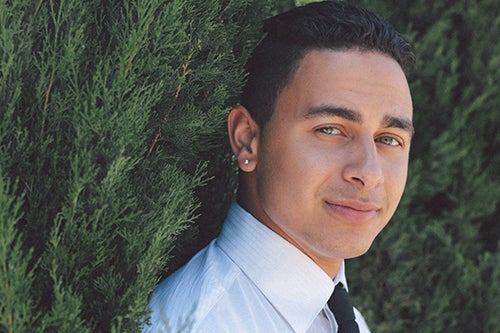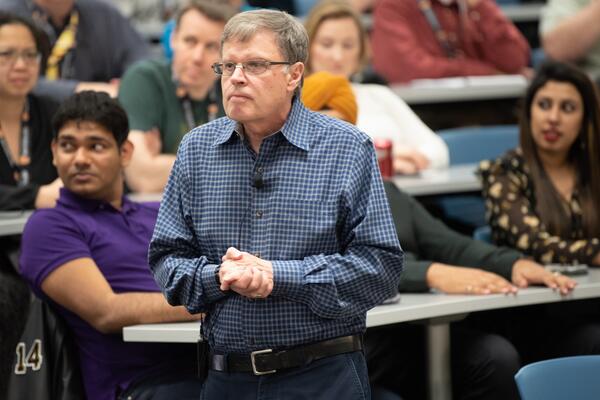
Waterloo startup will connect First Nations to Asian investors
Economics undergrad hopes to build bridges between resource-rich aboriginal communities and investors

Economics undergrad hopes to build bridges between resource-rich aboriginal communities and investors
By Heather Bean Marketing and Strategic Communications
While working at a co-op job in Hong Kong, Waterloo student Robert Beamish’s boss asked him to organize a business pitch competition in Beijing.
Then she told Beamish he would be the first presenter to make a pitch.
“It was the push I needed,” says Beamish, a fourth-year economics and business student in the Faculty of Arts.
Beamish went on to win the competition and launch his startup, Anokasan, a business that matches resource-rich Canadian aboriginal communities with Asian investors. So far, interest has been strong. With his Hong Kong-based partner, Evan Wilcox, Beamish has already begun work on two natural resource projects in the Northwest Territories.
The key to the startup’s success, says Beamish, is his passion for building relationships, something he discovered through Waterloo’s exchange program at the Universidad Carlos III in Madrid.
There, he volunteered at the university’ Exchange Network as an administrative coordinator. “My job was to take people from all around the world and find common ground for them. I loved it.” Eventually, Beamish realized his own skill at building relationships across cultures was a valuable, and marketable resource.
Beamish is also receiving mentorship through a social startup program called GreenHouse and the Waterloo Aboriginal Education Centre. Both programs are run through St. Paul's University, an affiliated college at the University of Waterloo.
Through Anokasan, Beamish runs seminars and workshops tailored to introduce Asian investors to each specific aboriginal culture, and offers seminars on Asian business culture to aboriginal communities. That way, preconceptions and assumptions can be dealt with before the first meeting. Then he facilitates delegation trips, social events, and cultural exchanges. All this, Beamish says, because strong relationships are key to good business in both cultures. When a deal is reached, Anokasan takes a small percentage.
Beamish says aboriginal values shape their business. He and his partner are themselves members of aboriginal communities: Algonquin Metis and Cree Metis, respectively. Beamish says his own father has taught him to see his culture as more than a gateway to business opportunity: “Understanding the beliefs and values around aboriginal culture is key to doing business in that area, yes, but it’s also important to remain true to who you are and your culture.”

Read more
For more than four decades, Waterloo professor Larry Smith has helped build the University's reputation for innovation and entrepreneurial excellence

Read more
From bubble tea to craft beer and delicious bites, Waterloo entrepreneurs are serving up success stories of passion, purpose and community, one food venture at a time

Read more
More than 20 founders from Waterloo highlight the newly unveiled list that celebrates those making the biggest impact inside Canadian tech and innovation
The University of Waterloo acknowledges that much of our work takes place on the traditional territory of the Neutral, Anishinaabeg, and Haudenosaunee peoples. Our main campus is situated on the Haldimand Tract, the land granted to the Six Nations that includes six miles on each side of the Grand River. Our active work toward reconciliation takes place across our campuses through research, learning, teaching, and community building, and is co-ordinated within the Office of Indigenous Relations.